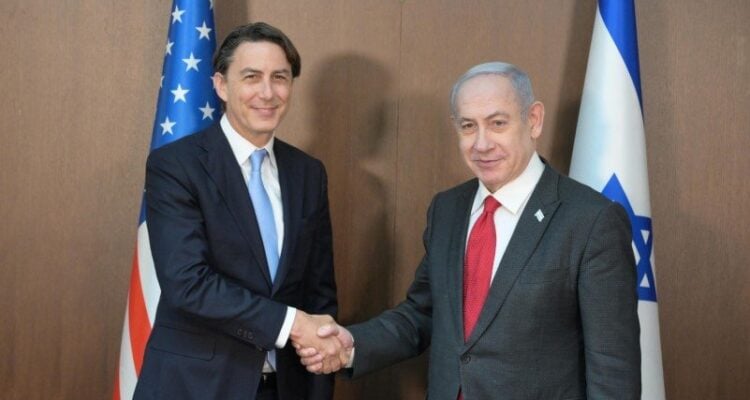Multiple reports indicate Jerusalem has signaled its approval of an American-backed truce between Israel and Hezbollah, accepting the core provisions of the draft deal.
By World Israel News Staff
The Israeli government has given preliminary approval to an American-backed ceasefire proposal to end the fighting in Lebanon, multiple Hebrew-language media outlets reported overnight.
Israeli Prime Minister Benjamin Netanyahu held multiple meetings with senior officials Sunday, and according to reports by Ha’aretz, Yedioth Aharanoth, and Kan, has agreed in principle with the ceasefire proposal presented last week by Biden administration special envoy to the Middle East Amos Hochstein.
Hochstein visited Israel last week and met with Prime Minister Netanyahu, following his trip to Beirut, where he met with Lebanese leaders, including Speaker of the Lebanese parliament Nabih Berri.
A leader of the Shi’ite movement Amal, Berri has served as an interlocutor for talks between the U.S. and the Iranian-backed Hezbollah terrorist organization.
Following Hochstein’s visit to Lebanon last week, Hezbollah secretary-general Naim Qassem said that Hezbollah had reviewed the proposed ceasefire, issued its response to Hochstein, and that the matter was now up to Israel.
Hochstein reportedly pressed top Israeli officials over the weekend, warning them that this marks the administration’s final attempt to broker a ceasefire, and that a rejection by Jerusalem would end efforts by the Biden White House to bring the two sides to a deal.
Netanyahu has reportedly agreed in principle to the ceasefire deal, and is now mulling how to present the decision to the Israeli public.
While the ceasefire deal has yet to be finalized and some key sticking points remain, it would reportedly include three major provisions, and would be implemented in three stages.
According to reports last week, under the American proposal, Hezbollah would be required to withdraw its forces away from the Israeli border and north of the Litani River, with the terrorist group also obligated to disarm, in keeping with United Nations Security Council Resolution 1701.
Secondly, a U.S.-led committee would be tasked with ensuring compliance with the ceasefire.
Finally, Israel would retain the right to respond militarily in Lebanon to violations of the ceasefire, but only after the committee exhausts other avenues for restoring the peace.
In the first stage of the deal, a ceasefire would be imposed during which Hezbollah would withdraw from the southern bank of the Litani River.
Afterwards, Israeli forces would withdraw from Lebanese territory.
In the third and final stage, Israel and Lebanon would enter into talks regarding contested border areas.





